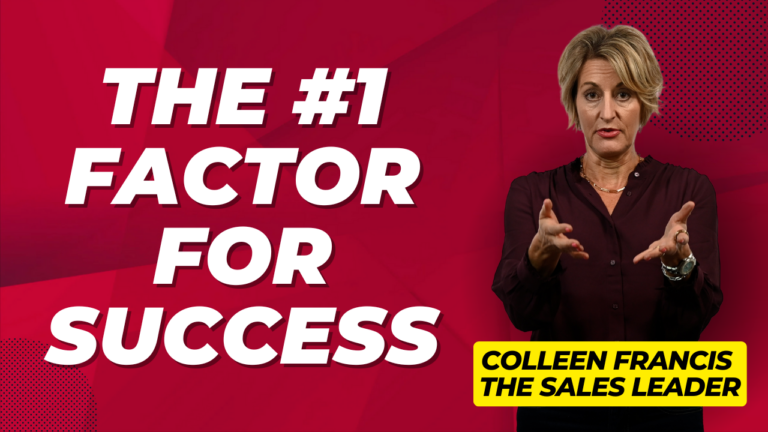Beware joining the ranks of the one-hit wonders: those who have enjoyed fleeting success that they could never again repeat.
The music industry and the book publishing business are teaming with examples (“She Blinded Me with Science” anyone)? The sales profession is just as prone.
Those who have experienced being a one-hit wonder can only go so far blaming it all on a turn of luck. More often than not, what’s lacking is a deep understanding of what made their success possible in the first place.
There’s a lesson in there for sales leaders that I can sum up in one word: commitment.
If you don’t make a deep, ongoing commitment to understand your selling process—why it works, how it solves problems and mitigates against risk—you’re on the road to disappointment and failure.
Here’s the good news: failure can be avoided, but you must recognize when commitment is lacking and know how to get it back.
The danger signs.
When I see a sales organization struggling regularly to meet targets, here are the red flags of vanishing commitment I look for (and I usually find them).
First, are people sticking to the goals they set for themselves or that the organization is setting for the team? If not, what happens next? Just as important, is there a clear, repeatable series of steps for the sales team to follow with each project, each prospect, or each follow-up? Third, what about the quality and reliability of the sales data you are using: how sure are you that it’s as good as you think it is?
Getting commitment back.
To solve sinking sales, people need to buy-in to two ideas: that their existing commitment to sales excellence is lacking and that they are willing to do what it takes to make improvements so that goals can be achievable once again.
You can test the readiness of your team by ensuring you have the right blend of willingness vs ability on board.
Here’s how you can do that. Ask yourself: even if your team is willing to do the work to implement and use a sales pipeline properly, do they know how to do that? If they don’t, then training is required.
Now look at the flipside: what if they have the skills already but are just unwilling to do the work? Then you either have to look at ways to influence their mindset and boost their motivation. Or you need to fire them.
Here’s an example that I’ve seen among my own clients. When a Fortune-500 company hired Engage to help accelerate their sales, we quickly discovered a gap in willingness/ability within the sales group in terms of how they were measuring performance. The sales reps were managing and tracking their work on unshared, unsecure, unchecked spreadsheets. Meanwhile, the sales managers were using Salesforce.
Obviously neither side was producing reliable data on sales performance. The managers knew this—and so did the sales reps—but both sides lacked the willingness to make changes.
Meeting with the management team, we were blunt in our assessment: you must put a stop to sales reps using their own spreadsheets and set a date by which all members of your team must use one system. Without commitment to the process, sales results will continue to suffer.
With two months of transition combined with coaching and accurate data, that client was now on the right track, paving the way to better sales results.
Make no mistake: if you correctly diagnose a performance issue in your workplace and do nothing to solve it, you are complicit in undermining the healthy commitment level you need for sales success. Don’t be that person.
Making commitment stick.
Securing the commitment of the team to your process isn’t a one-time activity: it’s ongoing. That’s how you ensure you steer clear of the dangers of being a one-hit wonder in sales.
There are three ways to make commitment stick. First, be realistic with your sales pipeline process. Don’t set goals that nobody can reach or you’ll undermine all your hard work. Second, set up coaching sessions internally between you and your staff. Set the bar high for sales leadership and match it with action and generosity: a willingness to share what you know combined with accountability for your team to implement what they promised. Lastly, look for internal champions. Find the people who are doing things the way you want them done, and give them the soapbox to tell their story and the tools to teach others to emulate their successful business habits and processes.
Commitment: know what works, why it works and be willing to work hard to ensure that it keeps working. These are what you need to keep your sales record at the top of the charts and out of the has-been playlists.




